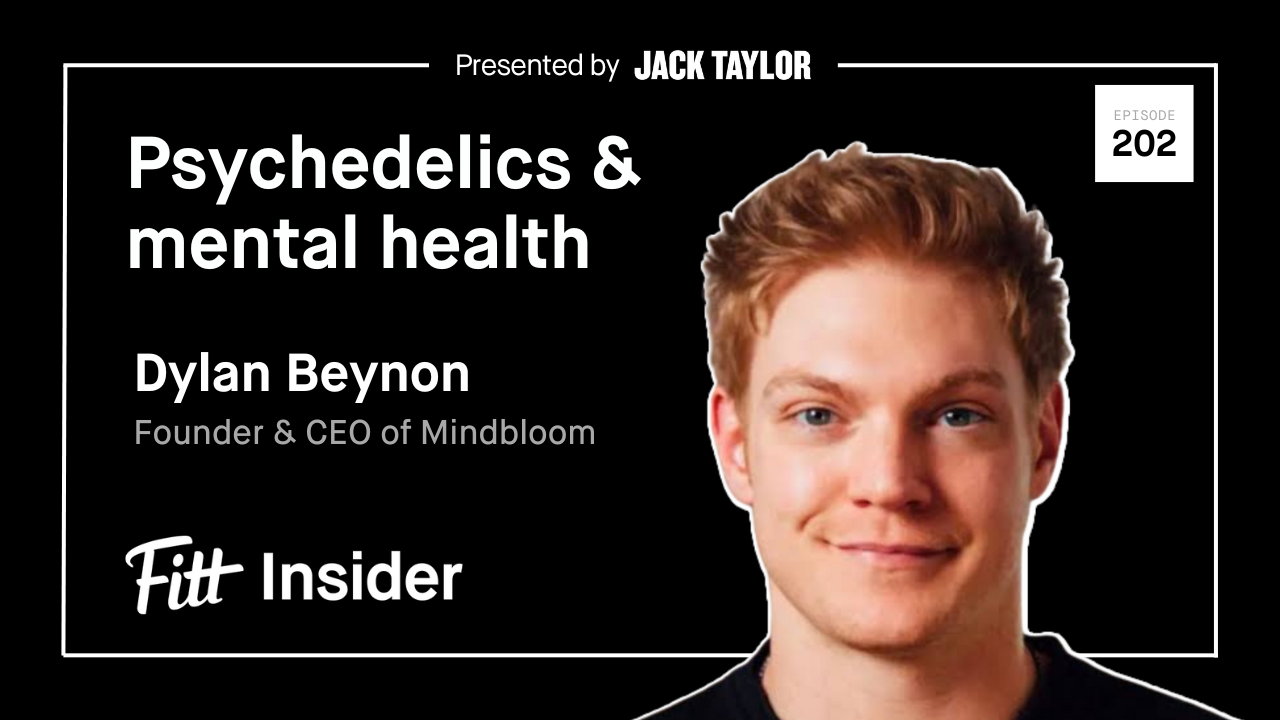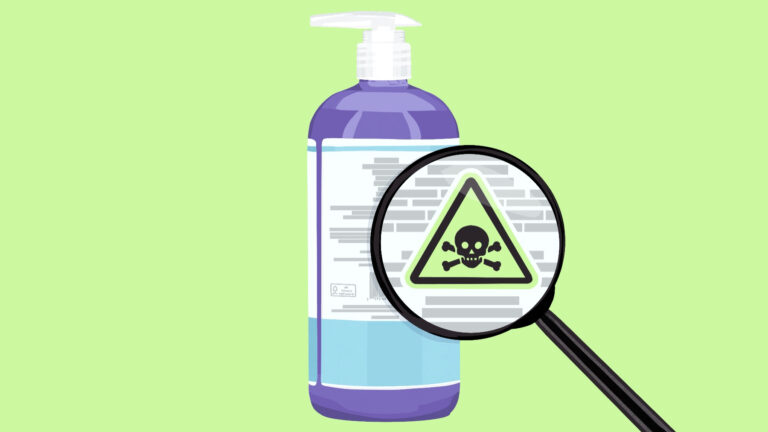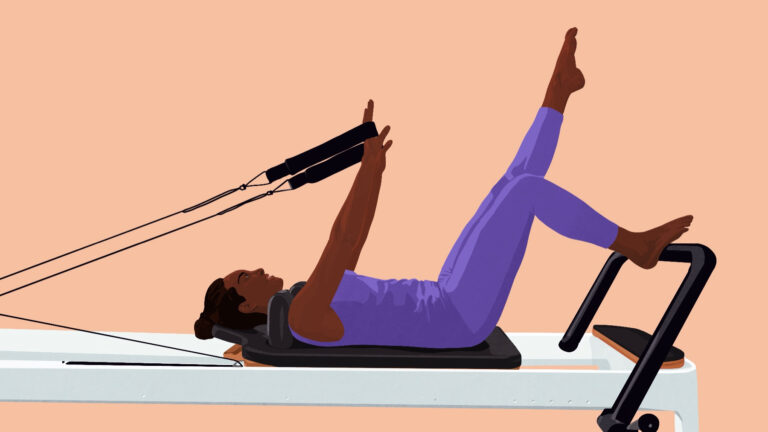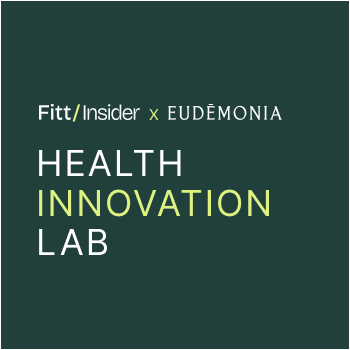
Lightmatter’s team of designers, developers, and strategists empowers healthtech innovators to execute big ideas.
From post-workout to preventative wellness, the recovery craze has entered new territory.
Peak Performance
Common among pro athletes, recovery protocols like ice baths and bodywork are considered essential to high performance.
Moving from the professional ranks to the consumer market, massage gun makers Hyperice and Therabody popularized recovery tech for the masses.
Now, the post-pandemic emphasis on personal well-being is fueling demand for preventative, holistic wellness — further blurring the line between self-care and healthcare.
- More than 70% of US adults are dissatisfied with the nation’s healthcare system.
- 63% of Americans believe spending on preventative wellness will curb healthcare costs and enhance longevity.
- Shifting US healthcare spending to focus on prevention and well-being could save $3.5T by 2040, according to Deloitte.
Aligning with this shift, and fueled by social media, everyday exercisers are adopting new recovery regimens to feel their best in all aspects of life.
New Territory
Rooted in treatment for reducing soreness or restoring physical function, recovery has become a catch-all for everything from massage and compression to cryotherapy and IV drips.
At the same time, consumers are spending more for a wide range of goals, like managing stress, improving sleep, and even boosting lifespan.
Sensing an opportunity, recovery-centric brands are breaking new ground to reach health seekers at home, in the gym, or on the go.
House call. High-end wellness club Remedy Place is set to launch new products for the home. Dubbed Tech-Remedy and developed with partners like Kohler, the collection includes ice baths, saunas, cryotherapy, a hyperbaric oxygen chamber, and more.
A step further, the company promises to transform the home into a mini Remedy Place by designing and installing Remedy Rooms outfitted with its new products.
Another approach, as personal saunas become the new Peloton, Ancient Ritual created an “experiential sauna,” combining heat, light, sound, breathwork, and meditation. Having hosted 1K+ in-person demos, the brand amassed a lengthy waitlist ahead of launching its flagship product Arc next year.
In the gym. Exercisers aren’t buying the “no pain, no gain” mantra. Instead, demand for restorative classes has opened the door to recovery services.
- 44% of Americans say services like massage, cryotherapy, and sauna are important, with over a fourth reporting regular treatment, per Mindbody.
- Xplor Technologies found 60% of boutique studios prioritize wellness services, with many planning to add recovery classes, meditation/breathwork, and sauna/ice baths.
While premium brands like Life Time and Equinox push further into spa-like services, budget gyms like Planet Fitness and 24 Hour Fitness are incorporating tech-equipped recovery areas to entice members.
Taking full advantage, Plunge teamed with Aktiv Solutions to bring cold plunges to fitness facilities. Meanwhile, Hyperice secured $100M in growth capital — with plans to outfit gyms with dedicated recovery rooms and tech.
Scaling up. Beyond fitness, franchise operators are riding the recovery wave. With $140M in funding, Restore Hyper Wellness is targeting 500 locations by the end of next year. Following a similar playbook, Perspire Sauna Studio and iCRYO are in expansion mode.
SweatHouz, founded by prolific Orangetheory Fitness franchisee Jamie Weeks, is also pushing the pace, with plans to open 100 sauna/cold plunge studios by the end of 2024.
No hands. Aescape is reimagining massage with an AI-powered, fully automated experience. The company’s high-tech massage tables aim to mimic human touch in a data-driven, self-directed session. With $25M in funding added last month and partnerships in fitness and hospitality, Aescape is preparing for commercial launch in early 2024.
Punchline: “Recovery” now applies to any product or service that primes us to conquer life’s everyday stressors. Having successfully infiltrated new categories—from fitness to mental wellness to beauty—expect to see greater emphasis placed on recovery protocols for longevity, as brands targeting anti-aging and healthcare seek clinical validation.
🎙 On the Podcast

Mindbloom CEO Dylan Beynon discusses the company’s approach to at-home ketamine therapy.
We also cover: the mental health crisis, the shortcomings of existing treatment options, and efforts to destigmatize psychedelics.
Listen to today’s episode here.
🍎 Samsung’s new app targets personalized nutrition
The global electronics company announced Samsung Food, an AI meal planning app that recommends recipes based on dietary preferences, nutrition goals, and available ingredients.
Healthyish. The app doesn’t dish dietary advice just yet. But, plans to integrate with Samsung Health and introduce new features for estimating calorie counts from food photos will support diet management.
Acting as a kitchen assistant, the app also syncs with Samsung’s smart kitchen appliances and exports grocery lists to simplify shopping.
Diet tech. Keeping pace with Apple and Google, Samsung’s health ecosystem is catering to demand for personalized, preventative wellness.
Enhancing its wearable tech, the company recently added sleep, heart rate, and menstrual cycle insights for the Galaxy Watch. Searching for an edge, creating a digital dietitian could set it apart from the competition.
Nutrition x AI. Lacking education and inspiration, consumers are willing to pay for personalized nutrition — prompting a race to make eating right as easy as possible.
- CGM platform January AI launched an AI-powered app translating biometric data into real-time food and lifestyle suggestions.
- Y Combinator-backed SnapCalorie announced $2M for its app that generates nutritional breakdowns from smartphone photos.
- Diagnostics platforms Viome, InsideTracker, and ZOE use at-home tests to inform which foods to avoid, minimize, or eat more of.
In the grocery aisle… Albertsons recently upgraded its digital health app to help customers track the macronutrients of foods in their carts while shopping.
Punchline: Food curation apps unlock a new level of ease, translating users’ preferences into actionable meal plans, shopping lists, and cooking instructions. But, beyond AI, personalized nutrition should consider how a human touch—via oversight from an RD or health coach—could amplify outcomes.
✅ Execution is everything
Steve Jobs was right: “Ideas without action aren’t ideas. They’re regrets.”
That’s why ambitious healthtech companies trust Lightmatter.
Combining domain expertise with technical prowess, Lightmatter’s team of designers, developers, and strategists empowers innovators to execute their ideas.
Working with organizations of all sizes—from wellness startups to health systems—they’ve supported partners like Harvard Medical School, Two Chairs, and Ayble in building a healthier future.
See what’s possible: Check out Lightmatter’s work here.
SPONSORED
🍼 Startups confront the maternal health crisis
US maternal mortality spiked to a near-historic high in 2021, highlighting a disturbing trend.
- Childbirth is 3x more dangerous in the US than other high-income countries.
- 1,205 women died during pregnancy (or shortly after) in 2021, up from 754 in 2019.
- Racial and socioeconomic disparities are fueling a crisis that disproportionately impacts minority groups.
Making matters worse, over 80% of pregnancy-related deaths are considered preventable.
Complicated by a lack of access and an absence of culturally competent training, more women are missing out on critical aspects of maternal care. Struggling to adapt, the nation’s healthcare system has yet to grasp women’s physical and emotional needs before, during, and after birth.
Moms need more. Prioritizing the well-being of babies and moms, new initiatives are taking shape. A start, last year, the White House unveiled a maternal health blueprint expanding Medicaid’s postpartum coverage and providing resources to rural hospitals.
Meanwhile, digital health startups are bridging the gap between hospital and home care.
- 2022: Mahmee, Millie, Noula, and Cayaba Care raised funding for pregnancy-support services, emphasizing diversity and inclusion.
- Jan 2023: New York-based maternity center Oula secured $19M for its hybrid clinic combining midwifery and obstetrics.
- June 2023: Pomelo Care added $25M in a round led by a16z, partnering with major medical providers on value-based virtual care.
Another approach… Exercise during pregnancy can reduce the risk of complications like gestational diabetes, premature birth, C-section, and postpartum depression. Taking note, Expect Fitness offers an OBGYN-approved platform, and Pvolve partnered with Ovia Health on postpartum content.
Takeaway: Maternal care needs a new model, capable of serving women of all backgrounds when and where they need it. While tech-enabled, mission-driven startups are making headway, absent sweeping change, the outdated institutions will stifle progress.
📰 News & Notes
- Oura partners with Talkspace on patient sleep reports.
- Withings announces FDA-approval of BodyScan smart scale.
- Fitt Jobs: Hundreds of health & wellness companies are hiring.
- Othership secures Brooklyn property for next social bathhouse.
- Lifesum introduces hormonal meal plans as a workplace benefit.
- lululemon grew revenue 18% in Q2, accelerates new store openings.
- GoSaga inks master territory agreement with FitLab, plans 250+ fitness studios.*
💰 Money Moves
- Cosmetics company e.l.f. Beauty acquired high-performance skincare brand Naturium for $355M.
- Talofa, a gamified running app for mental and physical health, raised $6.3M from undisclosed investors.
- Plant-based food company Eat Just secured $16M in a funding round led by VegInvest/Ahimsa Foundation.
- London-based bladder health startup Jude added $4.2M to fuel US expansion.
- Beta Bionics, a diabetes management platform, raised $100M in a Series D round to advance its artificial pancreas tech.
Today’s newsletter was brought to you by Anthony Vennare, Joe Vennare, Ryan Deer, and Jasmina Breen. Special thanks to Jess Schram, digital health investor and startup consultant, for contributing research and insights on maternal health.
*sponsored content






